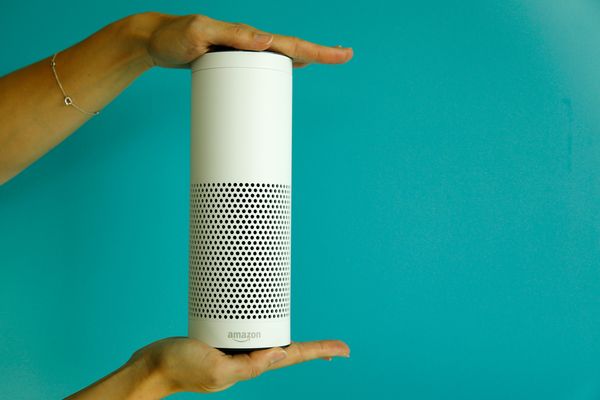OFweek smart home network news in the network business, China has created its own search engine (Baidu), e-commerce platform (Alibaba) and video streaming service (iqiyi), has achieved great success. However, there is a clear lack of smart speakers, and there are no products similar to Amazon Echo or Google Home.
In China, the market for equipment that uses audio to provide artificial intelligence services remains to be developed, and no researchers have tracked sales. Counterpoint Research, a market research agency, estimates that China will have 2 million smart speaker products on the market this year, compared with 14 million in the United States.

Compared to the device itself, the use of the device is a bigger problem, which is related to which company is responsible for the delivery of the AI ​​service. In the United States, companies such as Amazon, Google, Microsoft, Apple, and Facebook are all working hard to consolidate their position in people’s digital lives. Amazon said this week that during the "Member Day" shopping event, the sharply discounted Echo became the best-selling product.
“The overall understanding and response to natural language in China is still immature,†said Tracy Tsai, an analyst at Gartner, a market research firm. She believes that the equipment produced by some Chinese manufacturers is not capable of audio recognition and is a key reason why the market adoption rate is not high.
Kai Yu is the CEO of Horizon Robotics and the founder of China’s largest search engine, Baidu’s Deep Learning Institute. He believes there are other reasons why smart speakers have failed to launch in the world's largest retail market. Many people, especially young people, often have very little time at home, but only at home, smart speakers will be used.
“If you look at the popularity of the food delivery industry, you will find that people don’t have much time; young people are working most of the time or on the way to work,†he said. “There are still some people who are guessing that intelligence Whether speakers will be popular in China."
Beijing resident Tianran He could not find a proper reason to purchase a smart speaker, nor did he hear that his friend or family was talking about how to buy one. He said: "It's a bit weird to put a speaker in the house and let it receive all the audio."
Chinese consumers also tend to spend more time on mobile devices than in the living room and bedroom. According to the data of early 2016, Baiqi’s iQiyi is the most popular streaming service in China, and nearly 70% of users watch programs and movies through smart phones and tablets. In contrast, according to last year’s speech by Scott Mirer, vice president of ecosystem partnering for Netflix’s device partners, most of their audiences consumed video content on television.
Although smart speakers are not particularly popular in China, the Internet company plans to start selling them. Jingdong, an online retailer, is the largest brand merchant. According to the technology forecast, by the end of this year, smart speaker shipments will reach 1 million units. Counterpoint expects that 2022 units will sell 22 million units in China in 2022.
Both Alibaba and Tencent have announced plans to manufacture voice-driven speakers. DuerOS, Baidu’s Mandarin-speaking digital assistant, is being integrated into various products. At this month’s artificial intelligence conference, the company demonstrated a smart speaker—the presenter put it to the most common question in Beijing: “Today How is the air quality?"
Conexant Systems inc. is a smart speaker manufacturer that specializes in the development of technologies for capturing and processing audio. The company's president, Saleel Awsare, is currently working with the company. More than 60 Chinese companies have cooperated and hope to introduce audio-based smart devices, and there are about 20 partners in the United States, including Amazon.
“In China, there are more start-up companies focusing on this area; financing seems to be easier,†said Avasal. “It feels almost the same as when a smartphone was first introduced.â€
One possibility is that in China, artificial intelligence-based audio services will not be transmitted through speakers but through home appliances. According to IHS Markit, last year, 65% of the world’s smart home appliances were purchased by Chinese consumers. The company expects that by 2020, this figure will reach 95.1 million units.
The Midea Group and JD.com's latest refrigerators can remind owners to eat more green vegetables because they are equipped with image recognition cameras and software that can identify the food and vegetables inside. Jing Zhang, chief technology officer of Jingdong, said that while the concept of smart refrigerators is no longer new to some extent, it may be a viable way to get artificial intelligence into the home.
"The key to a refrigerator is not technology, but how technology fits into your life," said Zhang Chen. "Artificial intelligence requires real and practical applications."
Plug-In Connecting Terminals,Insulated Spade Terminals,Cable Connector Double Spade Terminals,Vinyl-Insulated Locking Spade Terminals
Taixing Longyi Terminals Co.,Ltd. , https://www.longyiterminals.com